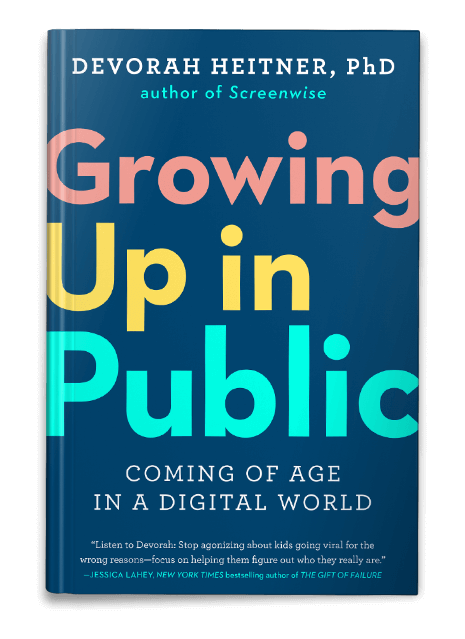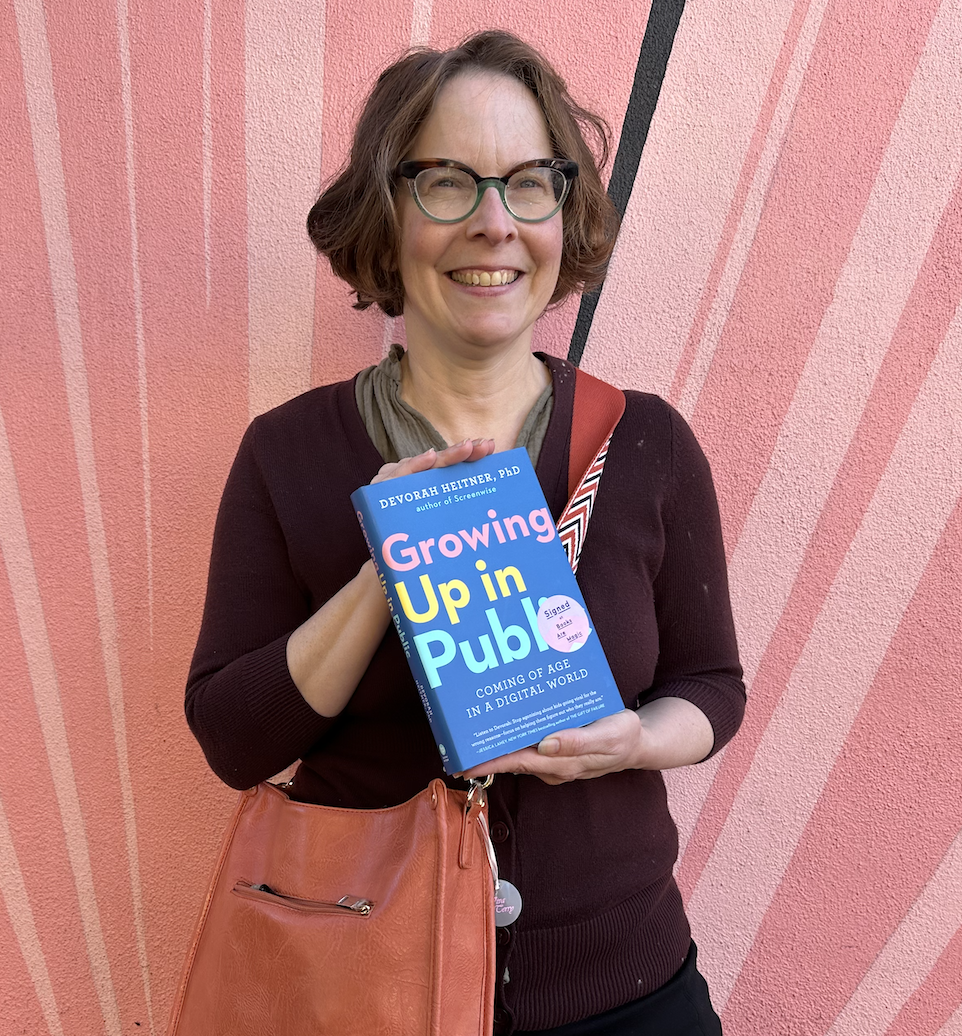These days, kids can join digital communities in anything from Roblox and Minecraft to classroom apps in elementary school. Some kids are in group texts by fifth or sixth grade and will need help to navigate them. Group texting is tricky can get explosive and messy. In my work helping parents and schools with kids and social media, I hear a lot of worries about tweens being “addicted to technology” or using powerful communication tools in immature ways.
How can parents help kids learn to navigate conflict and social drama?
As the author of Growing Up in Public: Coming of Age in a Digital World, I’ve said for years that mentoring is more powerful than monitoring.

Should I read all my kid’s texts and DMs?
Before setting up monitoring software, ask yourself: What is your goal? Have I proactively taught my kids how to handle tricky social situations by responding and not just reacting? Instead of looking to catch our kids doing the WRONG thing, we need to teach them how to do the RIGHT things.
Rather than spying, observe — does your tween seem stressed out by their group text or social media experience?
Even before a child gets their first phone, you can ask them what they will do on a group text if they see:
- Inappropriate language
- Mean or unkind gossip about other kids
- Unkind words about adults or teachers
- Exclusion: intentionally leaving someone else out
- Disgusting or Gross memes or videos
At least a year before giving your child a phone, consider what social skills they need to succeed. Begin establishing boundaries for when your child will have access to the device.
Mentoring vs. monitoring — be honest with yourself about your goals
Online spaces like Discord, Instagram, and even Google Classroom can leave parents feeling clueless about their kids’ social community. But if you monitor without disclosing, you could lose the opportunity to mentor your child. You may think it’s your right as a parent, but your child will see it as a breach of trust. When this happens, your child may go underground or feel that they have to be sneaky.
In other words, you could do more damage by monitoring covertly and intrusively, and miss the chance to build a stronger relationship by discussing the ups and downs of digital life.
- Tweens and teens are clever, and I’ve seen a few kids go to great lengths to evade covert spying. For instance, they might keep and manage two social media accounts or join a VPN.
- Reading the group texts will expose you to what their friends are saying, too. This can get tricky — your child will worry about their friends’ privacy. And, if you are extra invasive, they might either get left out of group texts or find a more private app to join. Calling other parents is an action I’d only take if what you’ve seen indicates a serious danger to the child or community. The older your kids are, the more true this becomes. In elementary school, it’s more possible to get involved and help kids move forward from mid-level conflicts.
- You may never see your kids’ friends the same way after reading their texts. Prepare yourself and try to remember — they aren’t intended for you.
How to talk with your kids about social conflict in digital spaces?
- Learn about their judgment. Ask your child to tell you when they get an inappropriate message. If they learn to do this independently, you can use the opportunity to teach them and build trust in your child.
- Communicate expectations. Remind them it can be hard to remember that human beings are on the other end of digital interactions. But they need to keep that in mind. When in doubt, don’t comment or share.
- Remember face-to-face. It is best to go offline and talk in person when they need to resolve a conflict.
What if you look at their phone and see something concerning?
Suppose you see something you don’t like. Unkind statements about a peer or other yucky stuff.
- First, don’t freak out. You could be missing a lot of context by seeing this moment or snippet! Remain calm and consider that there may be a broader context before reacting. Tread carefully, and have a strategy.
- Understand, don’t accuse. It helps to get more context to assess the situation and make good decisions. Ask open-ended questions about how things got where they are–rather than confronting your child immediately.
- Evaluate and move forward. How serious is the situation, and how urgent is it? If you believe your child is being harassed, bullied, or extorted, you must act immediately. But it is more helpful to be supportive and not rush in if you are dealing with everyday social dramas of elementary, middle, and high school. Instead, get some context and help your child self-advocate or set boundaries.
- Model “repair.” It’s ideal for the child to fix the issue independently, and your mentoring can help. Teach your child that if a post or text message upsets them, staying calm and speaking to the person directly is best. They should seek help from a parent or other adult if the situation is too serious to handle on their own.
Building a strong, honest, and open relationship with your child is the best defense against the digital issues kids face. Mistakes offer a chance for learning and growth for you and your child!
Devorah Heitner, PhD spent the last five years interviewing kids, teens, parents, educators and researchers for her new book: Growing Up in Public: Coming of Age in a Digital World.


